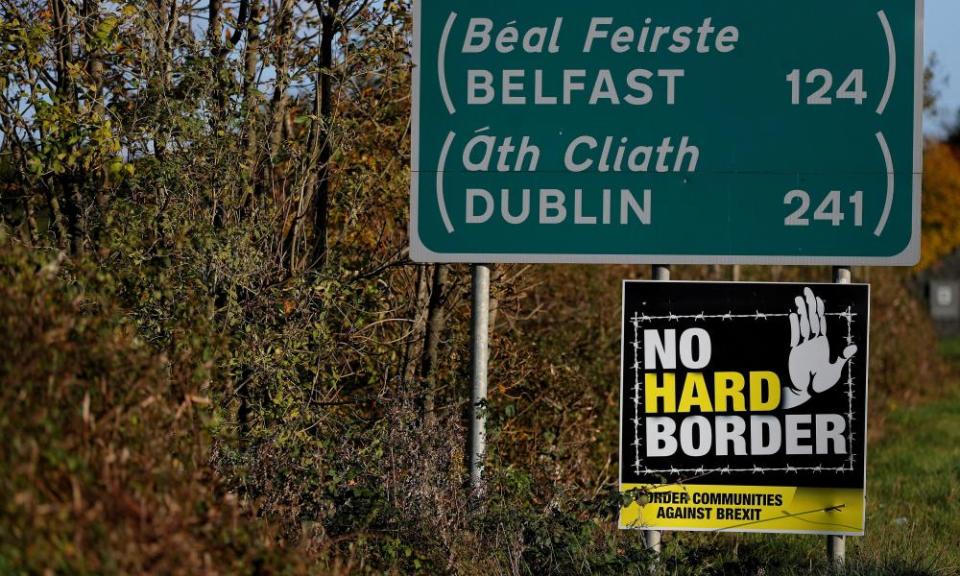UK proposes US-style waivers for EU citizens crossing Irish border

EU citizens and other non-Irish or non-British nationals who cross the border from the republic of Ireland into Northern Ireland will have to get pre-clearance under new rules being proposed by the UK government.
They will require a US-style waiver known as an Electronic Travel Authorisation (ETA) to cross the border as part of the new post-Brexit immigration nationality and borders bill.
The scheme is expected to come into force in 2025 but has already been denounced as “unworkable” on the Irish border, where thousands of people commute in both directions for schools, work and shopping.
Stephen Farry, an Alliance party MP, said it would create “new bureaucracy” and “legal uncertainty” for ordinary people going about their daily business, while the campaigner Emma DeSouza said the move was “absolutely wild” and would represent a “hardening of the border”.
The immigration minister Kevin Foster told the House of Commons Northern Ireland affairs committee that the ETA would be a simple authorisation, obtained online, and would, like the US Electronic System for Travel Authorization (ESTA) last multiple years.
Asked if the UK would be checking paperwork at the border, he said: “Absolutely not”.
“We don’t operate routine immigration controls through the common travel area,” he said referring to unique rules and laws that allow British and Irish nationals to live, work, study or retire in each other’s country without immigration controls.
“We anticipate this will be a fairly simple process. When the US ESTA originally launched you could fill it in at the airport and fly an hour or two later.
“I don’t want to perhaps get that type of guarantee yet, but we’re certainly looking at how we can make a simplified process as quick and simple,” Foster added.
The issue of post-Brexit borders creates particular problems in Ireland where EU nationals still enjoy freedom of movement rights, which means they do not need visas to live or work south of the border.
Foster said any non-Irish or non-British national who did not have the right to be in the UK visa-free would “probably get used to the idea that need to apply for something in terms of [travel into] the UK”.
He said he was very “conscious” of the special circumstances that applied around the Irish border and that “enforcement of it will be proportionate”.
This is not the first time the issue of Northern Ireland being used as a “back door” to immigration to the UK has arisen.
Before Brexit, police on both sides of the border coordinated control of non-EU immigration abuse of the common travel area through a joint scheme known as Operation Gull.
Data is not published but records shared with an Irish politician showed that in 2017, almost 800 individuals trying to get into Britain via Northern Ireland were stopped in one year.
Post-Brexit, EU nationals living in Ireland entering the UK via Northern Ireland would not be required to show passports as there was no airline liability on these internal routes, said Foster.
This would not, however, mean they could circumvent post-Brexit rules on work or residency rights as the Home Office’s “compliant environment” would “kick in”, he said, which requires employers and landlords to check their rights.

 Yahoo Finance
Yahoo Finance 